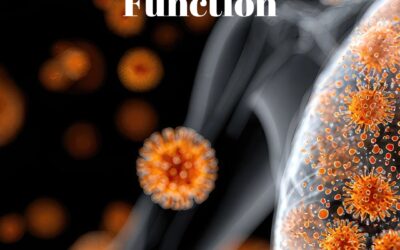Node Smith, ND
A recent study on the effects of sweet wormwood tea to treat schistosomiasis suggests a much more benign and accessible treatment for the common parasitic disease.1
Schistosomiasis
Schistosomiasis is incredibly under-researched, yet is a fairly common parasitic infection in tropical places where sanitation conditions are questionable. The World Health Organization calls the disease a “neglected” tropical disease, in that it is often overlooked and not much funding is given for its research. Yet it is estimated that up to 200 million individuals, mostly in developing nations are affected each year with a mortality that could potentially be as high as 200,000 people a year.
It’s an insidious disease that progresses from initial infection with a flatworm very slowly with symptoms not revealing a problem for sometimes years. During this time the parasites are laying eggs and multiplying. As the numbers of worms in a person’s system increases fatigue, digestive complaints, fevers begin. This entire time, the parasites are being shed into the water and recirculating into the population in areas where proper sanitation systems leave sewage to contaminate drinking water.
World Health Organization calls the disease a “neglected” tropical disease
So, the actual problem is sanitary conditions which leave the parasite free to circulate throughout populations, but it may be possible that something as simple as wormwood tea may help combat the infection.
Currently, the standard treatment is a drug named Praziquantel. Three doses are taken over the course of a single day. The treatment is generally effective, though side effects of nausea, headache, and fatigue are common.
The study looked at teas made from 2 wormwood species
The study in question looked at teas made from two wormwood species – Artemisia annua and Artemisia afra (sweet wormwood and African wormwood, respectively) – could be used as treatment for schistosomiasis.
Study included 800 individuals
The study included 800 individuals in the Maniema Province in eastern Democratic Republic of Congo. All individuals were confirmed to have schistosomiasis. Half were treated with conventional pharmacological drugs, and the other half was given wormwood tea.
Conclusion of the study
The conclusion of the study was that the wormwood tea cured schistosomiasis with fewer side effects than the most common drug treatment.
The patients had to drink the tea daily for 7 days, but after this time there were no eggs found in the feces of either group. The tea was much more tolerable than the drug, which caused headaches, nausea and fatigue in many people.
Two considerations of wormwood tea
Two considerations of the wormwood tea is its very bitter taste, which many people do not like. And also, it must be drank fresh, its effects are not nearly as strong if thee tea is left to stand for more than 24 hours. However, the wormwood plant does grow readily in tropical areas and could serve as a means to address this endemic infection in developing countries.
Source:
 Node Smith, ND, is a naturopathic physician in Portland, OR and associate editor for NDNR. He has been instrumental in maintaining a firm connection to the philosophy and heritage of naturopathic medicine among the next generation of docs. He helped found the first multi-generational experiential retreat, which brings elders, alumni, and students together for a weekend camp-out where naturopathic medicine and medical philosophy are experienced in nature. Four years ago he helped found the non-profit, Association for Naturopathic ReVitalization (ANR), for which he serves as the board chairman. ANR has a mission to inspire health practitioners to embody the naturopathic principles through experiential education. Node also has a firm belief that the next era of naturopathic medicine will see a resurgence of in-patient facilities which use fasting, earthing, hydrotherapy and homeopathy to bring people back from chronic diseases of modern living; he is involved in numerous conversations and projects to bring about this vision.
Node Smith, ND, is a naturopathic physician in Portland, OR and associate editor for NDNR. He has been instrumental in maintaining a firm connection to the philosophy and heritage of naturopathic medicine among the next generation of docs. He helped found the first multi-generational experiential retreat, which brings elders, alumni, and students together for a weekend camp-out where naturopathic medicine and medical philosophy are experienced in nature. Four years ago he helped found the non-profit, Association for Naturopathic ReVitalization (ANR), for which he serves as the board chairman. ANR has a mission to inspire health practitioners to embody the naturopathic principles through experiential education. Node also has a firm belief that the next era of naturopathic medicine will see a resurgence of in-patient facilities which use fasting, earthing, hydrotherapy and homeopathy to bring people back from chronic diseases of modern living; he is involved in numerous conversations and projects to bring about this vision.





















